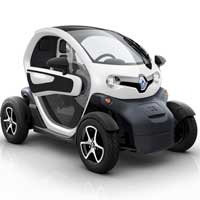 |
 |
In this Edition May 2012 |
LEAD FEATURE |
COMPANY NEWS |
MATERIALS NEWS |
MACHINERY NEWS |
EXHIBITION NEWS |
INJECTION MOULDING ASIA |
RUBBER JOURNAL ASIA |
PRA June-July 2012 Electronic Issue Now Available |
![]() Injection Moulding Asia
Injection Moulding Asia
Automotive parts made lighter with PP and fibre use
 |
Borealis's high flow Borcom WH107AE was specified for the recently introduced Dacia Lodgy, a minivan produced at Renault's new plant in Morocco and for the Renault Twizy, Renault's first electrical car produced at its plant in Spain. Borcom WH107AE is already in use for new generation bumper applications in other Renault platforms including but not limited to the new Dacia Duster and Sandero in South America and Russia.
The specification of Borcom WH107AE underlines a number of major benefits to Renault. These include reducing the thickness of parts and density of materials used for car bumpers.
In other news, Faurecia's natural fibres for the injection moulding process known as NAFI uses in-line compounding to add fibres such as hemp or kenaf to PP to reinforce parts in place of heavier glass.
The company says it has validated door panels produced using the method and xpects to complete validation of an instrument panel using natural fibre injection moulding later this year.
Compression moulded natural fibre-reinforced parts are typically used for package trays in the passenger compartment or for door panel substrates, which are then covered with fabric or other trim.
The firm says its method is able to render weight savings of 25%, compared to parts using glass fibre reinforcement.


